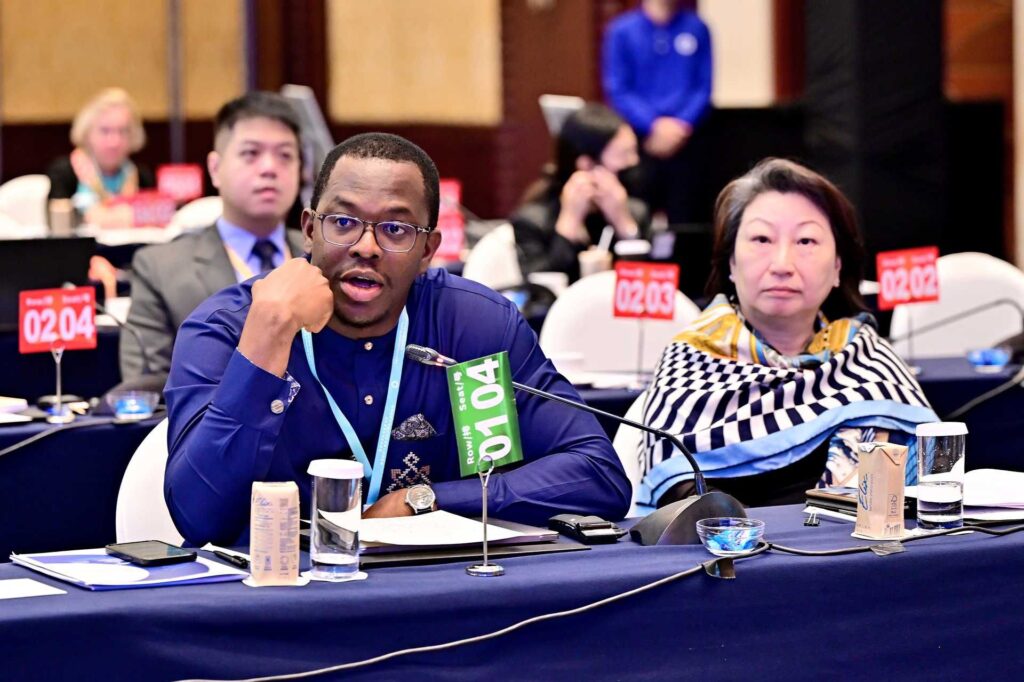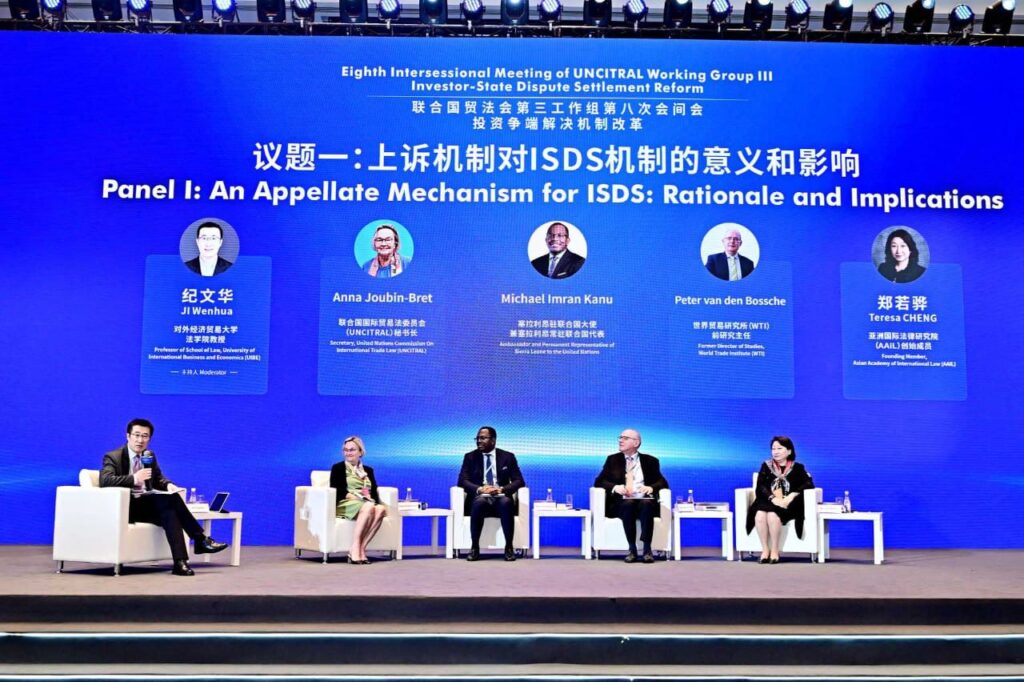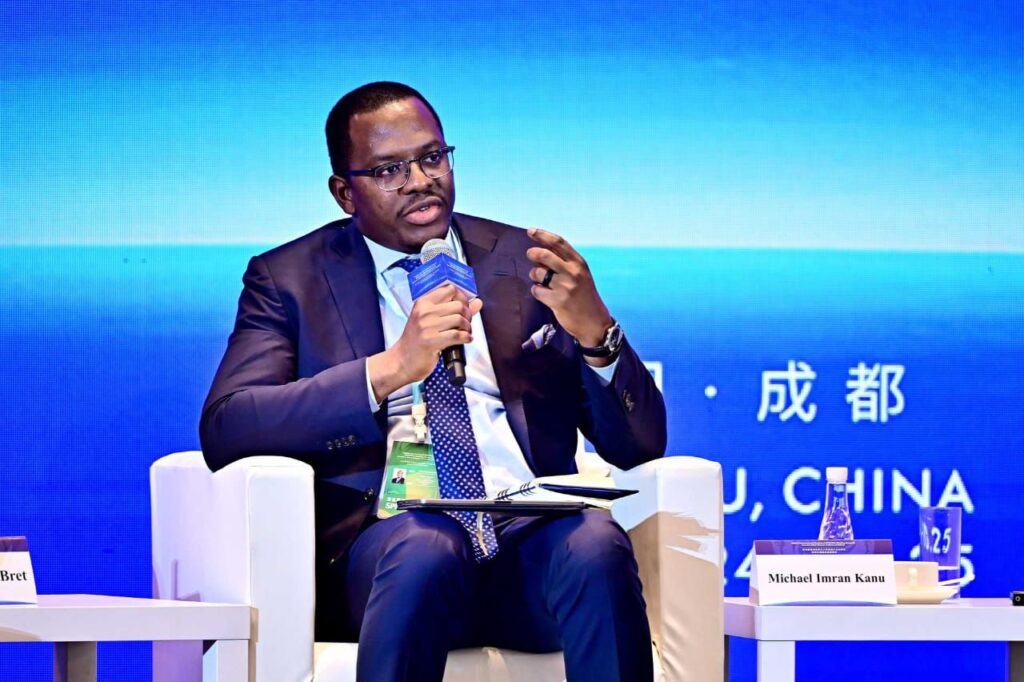H.E. Dr. Michael Imran Kanu, Ambassador and Permanent Representative of Sierra Leone to the United Nations, reaffirmed Sierra Leone’s commitment to an Appellate Mechanism within a two-tier permanent standing framework for Investor-State Dispute Settlement (ISDS) during the 8th Intersessional Meeting of UNCITRAL Working Group III, held on October 24-25, 2024, in Chengdu, China.
The intersessional meeting focused on key issues concerning an appellate mechanism and a multilateral instrument on ISDS reform. Participants engaged in thorough discussions aimed at advancing the reform process and assessing its potential implications.
On October 24, Ambassador Kanu took part in the panel titled “An Appellate Mechanism for ISDS: Rationale and Implications.” He emphasized that establishing an appellate mechanism would enhance the correctness, consistency, predictability, and coherence of ISDS decisions, thereby strengthening the legitimacy of the system.

Ambassador Kanu highlighted that the ISDS system originated as a means to address access to justice issues, stemming from a lack of trust in local justice systems by foreign investors. He pointed out that current ISDS challenges, such as inconsistent interpretations, insufficient frameworks, and limited mechanisms for addressing these inconsistencies, have fostered deep-seated mistrust, particularly among developing countries.
Reflecting on the systemic concerns identified by UNCITRAL WG III, he argued that these issues must be viewed in light of the benefits of the existing arbitration system, which is built on principles of neutrality, finality, and party autonomy. Ambassador Kanu contended that an appellate mechanism—whether as part of a standing system or as an ad hoc solution—offers the best opportunity to tackle these systemic concerns. He noted that a two-tier system is essential for achieving this objective. For example, a structure with permanent adjudicators would enhance consistency and predictability in interpreting treaties and related clauses.
In conclusion, Ambassador Kanu stressed that the reform of the ISDS system through an appellate mechanism should focus on efficiency, cost-effectiveness, timely resolution of unfounded claims, and predictable outcomes. He also underscored the necessity of addressing diversity issues, which are crucial for developing countries.

Panel I was moderated by Prof. Jl Wenhua from the University of International Business and Economics in China, featuring contributions from Madam Anna Joubin-Bret, Secretary of UNCITRAL; Prof. Peter van den Bossche, Former Director of Studies at the World Trade Institute; and Prof. Teresa Cheng, Founding Member of the Asian Academy of International Law.


